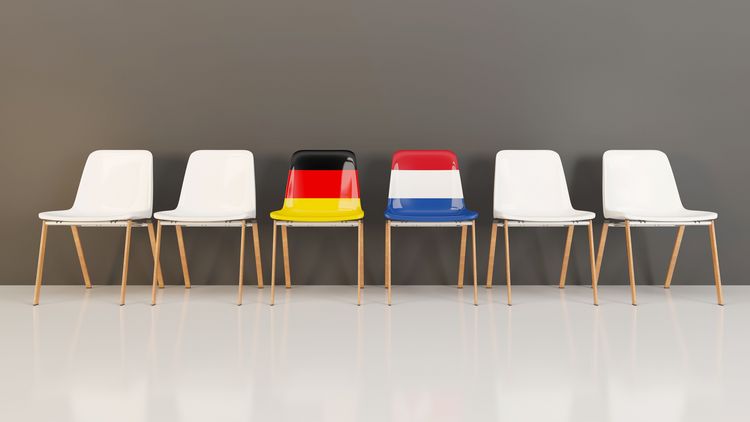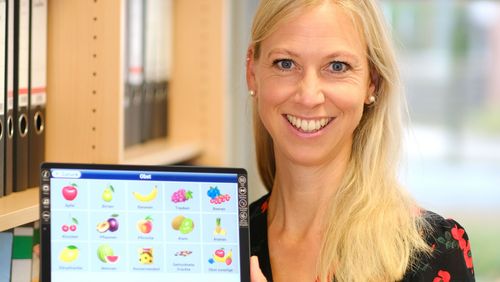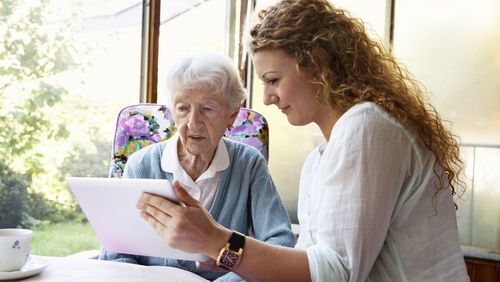Researchers at the Cross-border institute of healthcare systems and prevention (CBI) are not only studying the healthcare systems in Germany and the Netherlands – they also want to bring together their stakeholders.
Shopping, vacation, leisure activities: In many areas of life, the border between Germany and the Netherlands seems to be nothing more than a blue road sign with yellow stars at the border crossing. But when it comes to doctor's visits or hospital stays, people almost always remain on their side of the border.
Yet the cities and towns in the Ems-Dollart region have certain features in common: "Both sides of the border are rural and usually have poorer medical care – a characteristic that also other border regions have," explains Prof. Dr Axel Hamprecht. The microbiologist not only heads the university’s Institute of Medical Microbiology and Virology, but is also one of the directors of the Cross-border institute of healthcare systems and prevention (CBI) founded in 2019 by the universities of Oldenburg and Groningen.
Although the COVID-19 pandemic has hampered the start of cross-border medical and healthcare research, ten pilot studies are currently underway, each involving researchers from both partner universities to investigate differences and similarities in healthcare systems. "The existing cooperation with Groningen, especially in medicine, has made it easier for us to get started," Hamprecht says. Right from the start, researchers showed a strong interest to participate in cross-border projects: the number of applications significantly exceeded the number of subprojects available.
In addition to scientific findings, the researchers are currently gaining a lot of practical experience. "“Views on issues such as privacy or ethical consent are different in the two countries. This makes approval processes even more complicated, especially when it comes to patient data,” says Hamprecht.
But it is precisely the differences between the two countries that make research in the region so interesting. "My topic is antibiotic resistance. In this field, Germany and the Netherlands have a completely different setting," explains Hamprecht, who is conducting the study with his Groningen colleague Dr Corinna Glasner. "The Netherlands started screening patients for MRSA germs very early on. In addition, Dutch hospitals often have their own institutes for microbiology, whereas in Germany, especially small hospitals send their samples to an external laboratory, so they don't have experts in microbiology on site." The approach to the issue of when to isolate patients also differs, he said. That's why he wants to study these differences and, above all, their impact on the contamination with multidrug-resistant germs.
A common problem in the Dutch and German healthcare systems is being addressed by Groningen-based occupational health scientist Prof. Dr Sandra Brouwer in tandem with Oldenburg-based healthcare researcher Prof. Dr Lena Ansmann: the shortage of skilled nursing staff. "This imbalance concerns both countries, but the systems work differently," Brouwer explains. In the Netherlands, nursing professionals usually have an academic background, which makes direct comparisons with Germany difficult. For cross-border research, it is also important that hierarchies function differently in the two countries. "Unlike here, in Germany, for example, there are nursing directors who, are part of the hospital management and have a good overview of the overall situation of the care situation in the hospital. This makes them interesting interview partners for us," says Brouwer.
The project on the nursing shortage is still in its early stages. Parallel to this and the other nine research projects, however, networking is in full swing. In addition to scientific work, the CBI participants want to bring together researchers from various disciplines with those who work in the health care system on both sides of the border, such as in government agencies, health care companies, health insurance companies, patient advocacy groups or any health care professionals.
"Our goal is to participate the region. Ideally, we would like to contribute to specific improvements with our research," Hamprecht emphasizes.
One of these network meetings, for example, will take place on November 25 – the so-called "Cross-Border Health Research Meet-up." The CBI is inviting participants to Leer, a city in the middle of the research area.
There, CBI members will report on the current status of their research – for example, on the different approaches to hip surgery in the two countries. In addition, keynote speakers will take a more global look at the topic. Susanne Sivonen from Maastricht will talk about the difficulties in reimbursing treatment costs when people seek healthcare services on the other side of the border. Julia Winkler from the Lower Austrian initiative "Healthacross" will report on cooperation in the healthcare sector in the border region between Austria, the Czech Republic and Slovakia.
Registrations are possible until November 15. Researchers who are interested in studying health care in the region from a legal, economic or social science perspective, for example, are also invited to attend.






